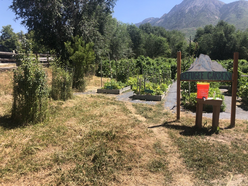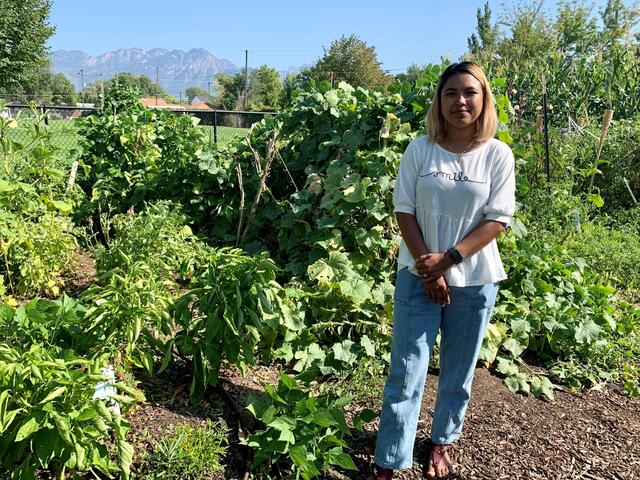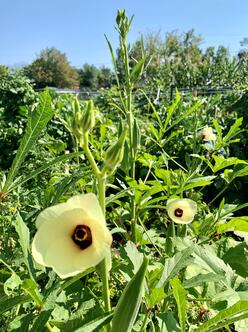
New Roots, a program of the International Rescue Committee (IRC) in Salt Lake City, oversees 12 different community garden sites throughout the Salt Lake valley. At these garden sites, participants in the New Roots Community Garden program have access to grow produce for their families, increasing their access to nutritional foods and helping stretch household budgets.
At a garden site in Salt Lake City, corn stalks tower over Menuka as she walks between the garden beds to harvest beans, tomatoes and cucumbers. In the middle of September, everything in the garden is still lush and green, some plants heavy with ripe vegetables and others just starting to take on color. “What I enjoy most about gardening is that it makes you feel active,” Menuka says. “When you come to the garden, you can forget everything and just focus on the vegetables growing.” Menuka and her family are one of over 150 families participating in the New Roots Community Garden program in Salt Lake City.

After arriving in Salt Lake City in 2015, Menuka heard about the Community Garden program through a relative. “One day he took us to the garden, and we saw that everything we used to grow in Nepal, they’re growing here,” she recalls. To Menuka and her family, being able to grow produce with the New Roots Community Garden means they can have easy access to healthy, affordable foods that are commonplace in dishes they prepare.
Menuka’s family and community have played a big part in her gardening journey. She remembers her parents growing produce when they lived in Nepal, and now tends to her own garden right next to her mother-in-law’s garden bed. Menuka says that she is still learning many new things about gardening from her mother-in-law as they grow food side by side. “It’s not a competition,” Menuka assures, “We share everything.” Before starting her garden in Salt Lake City, Menuka didn’t have a lot of experience with gardening, so she enjoys having a family member to learn from.

Sierra Govett, New Roots community garden specialist, says that she often places orders for special seeds that are not usually grown in the U.S. Many New Roots gardeners are familiar with produce that are hard to find in American grocery stores at affordable prices. Most of them also have familiarity with growing these foods. “I would say 90 percent of the gardeners who come in, they have extensive gardening and farming backgrounds. They know way more than I do,” Sierra laughs. Sierra’s focus is supporting the gardeners, like making sure the gardeners have seeds and the garden beds have irrigation set up. The New Roots program is also tailored to meet the specific linguistic and cultural needs of refugee and new American participants, including providing interpretation and working through alternative methods of communication.
Since 2010, the New Roots program has been a pillar of the community-based efforts of the IRC in Salt Lake City. In August, New Roots received recognition for its commitment to help reduce food insecurity within local communities: Smith’s Food & Drug and Fox13 awarded New Roots the Zero Hunger Hero Award in August. New Roots not only provides gardeners an affordable and accessible way to grow their own food, they also have provided emergency food assistance to many refugee families served by the IRC as a result of the pandemic. “Farmers at [the New Roots] Redwood Farm grow vegetables that go into shares, then get picked up and delivered to families in need,” Sierra explains. “People who are in need of vegetables get fresh vegetables and the farmers who are growing get revenue.”
Learn more about the New Roots Community Gardens at NewRootsSLC.org/Gardens. You can also learn more about the program by watching the Zero Hunger Hero Award announcement shared by Fox13 here »